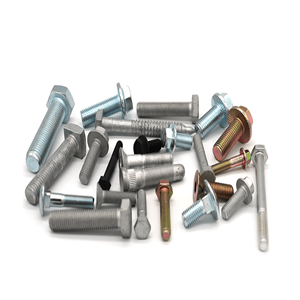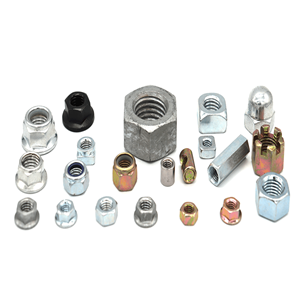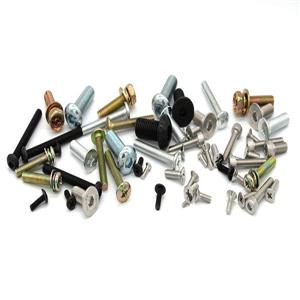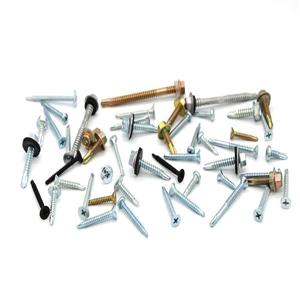Analysis of the causes of bolt fracture
1. Due to the material of the bolt, if the material we choose is better, then the quality of our bolt will be better. If we choose poor materials, then our bolts will break to a certain extent.
2. The strength of the bolt is not high enough. If the pressure on the bolt is greater than the strength of the bolt, the bolt will easily break. Therefore, when we use bolts, it is best to know how strong the bolt can withstand, so that we can choose a bolt higher than this strength, and the possibility of bolt breakage will be much reduced.
3. As a result of unqualified manufacturing, many bolts will be produced unqualified, so there is no way to display the quality of standard bolts, which will lead to bolt fracture to a certain extent. After we produce the bolts, we must go through testing, so that we can guarantee that the bolts are qualified before being sold. This is also the most basic guarantee for consumers.
4. Due to the fatigue strength of the bolt. The most common factor for bolts to break is due to the fatigue strength of the bolts. There is no problem when we use the bolts at the beginning, but after the work of the object, there may be a certain amount of looseness. If the work is loosened, the fatigue strength of the bolt will increase. When the bolt is reached, the fatigue strength of the bolt will increase. The limit of the bearing range, then the bolt will also break.
2. Measures to prevent bolt breakage:
1. Saiga horn
2. Improve bolt processing technology
3. Improve standard section processing technology
3. The quality of the bolt is determined by the length, specification, type, connection form and other conditions of the bolt.
4. The pre-tightening moment of the bolt makes the bolt subject to tensile stress and shear stress. The pre-tightening force is controlled to ensure that the flange connection system is tight and leak-proof, safe and reliable for a long period of time. The gasket surface must have enough The specific pressure of the seal, especially under high temperature conditions, the gasket will age, creep and relax, and the flanges and bolts will be thermally deformed. Therefore, the sealing of the high temperature connection system is much more difficult than normal temperature. At this time, the application and control of the bolt pre-tightening force It is very important, too large or too small pre-tightening force will have an adverse effect on the seal. If the pre-tightening force of the bolt is too large, the gasket will be crushed and lose its elasticity, and the bolt will even be broken. If the pre-tightening force of the bolt is too small, the residual compressive stress on the surface of the gasket after compression will not reach the working seal. Specific pressure, which leads to leakage in the connection system. Therefore, how to control the bolt pre-tightening force is a problem that must be paid attention to in production practice.
5. The tensile strength and yield strength of the bolt determine the strength of the bolt. The greater the strength, the longer the life expectancy.
6. Fatigue strength of bolts. It is related to the dangerous section area, the maximum and minimum stress of the bolt, the bolt stress amplitude, and the average stress of the bolt.
7. Bolt overload failure refers to the sudden and instantaneous fracture during service. This failure has no obvious signs in advance, so the damage is serious.
Overload failure characteristics:
High-strength bolts are widely used in hydropower plants. The threads on the bolts are actually the same as the notches, with a high stress concentration factor. When it is matched with the nut, the stress concentration factor is further improved. For bolts that transfer load through the compression nut, the stress is most concentrated at the first thread near the bearing surface of the nut. In addition, due to the structural characteristics of the bolt, the stress at the junction of the head and the rod is also concentrated. Therefore, the bolt's failure due to overload and breakage mostly occurs in these two parts.
8. Stress corrosion of high-strength bolts:
(1) Conditions for stress corrosion
There must be tensile stress. The greater the tensile stress, the shorter the time required to break. The stress required to break is generally lower than the yield strength of the material. The tensile force that the bolt bears in service and the pre-tightening force during assembly are conditions that lead to stress corrosion.
(2) There must be a corrosive medium sensitive to the material
When stress and corrosive media form a system, the material can suffer from stress corrosion cracking defects.




